#even though i graduated in 2015 his exam format is still the same
Text
Having a class about teaching with my former high school teacher is a fun experience, like today he was showing us how he makes his tests, it felt like watching a behind the scenes DVD extra or something
#even though i graduated in 2015 his exam format is still the same#but i do think it is one that works well because it has more to do with interpretation and connecting information than simply memorizing#also somehow we got to the subject of religion in school#(and my high school was a private Christian one)#and i complained in the chat about a religion class that the teacher had us (in the last year of high school) drawing some biblical passage#with fucking crayons#and he was like oh i had an argument with her once because she insisted in using the term 'dark ages'#text#personal
1 note
·
View note
Text
i pray this will never end, i have my heart open wide
This report is not going to cover my teams, spreads and so on, as it was in 2015. I even don’t know if I should call it a ‘report’, I just want to slop down some thoughts about 2017. Have a nice read.
Why did I return to vgc? I DONT KNOW. As you might remember, I was a tryharder in 2015, but Nats loss and Autumn Series event loss completely broke me. 2016 season wasn’t a thing I’d like to try out (especially with the 2015 wounds) and I got some serious mental health problems in 2016. New pokemon game was a thing that could possibly make my days a bit brighter, and yea, I liked the game, the tapus, the ultra beasts and I became curious about the new format. The first russian tournament was announced to be held in late December, but I was busy with exams prep and haven’t even completed the main story. Though the tournament was tempting. I tested my first ideas on PS which included Instruct spam xd, but Nihilego with proper support showed a real potential at our early days of metagame. I could make it to the tournament (MSS Q1, wow Russia got midseasons...) and somehow won it. It’s like WHATTT how could i... but still. This thing lit something inside me and I decided to give that season a chance.
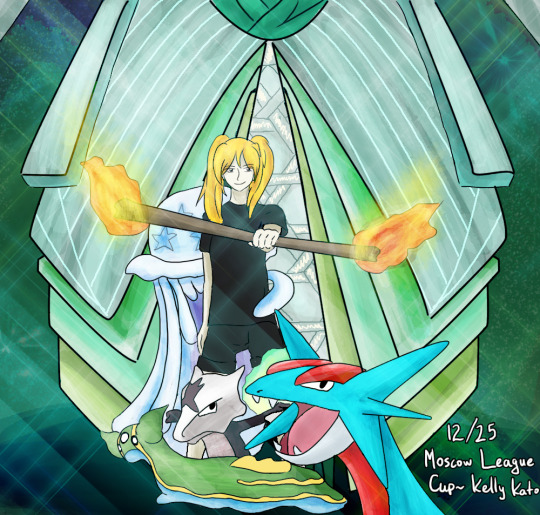
this is a very bad and old drawing of my mss q1 team xd sorry
January brought the first meta shift, and I started struggling with the team I had. I accidentally joined a random coversation on twitter and then I texted PephanVGC something like hey, did you remember we wanted to talk about teams. And he was very nice to me right from the start, he helped me out with the team and then we started to chat about everything. About friends, life, our past, loneliness and other troubles, and I thought I’ve found a real soulmate. We started to chat every day, but some days ago we were complete strangers to each other. This is so great.
Pephan shared a team with me I instantly fell in love with. It was Winter, so yeah Hail was cool to use, and that was the warmest winter I have :3 though Arcanines already were everywhere, and I removed Life Orb from his Koko to make it Electrium Z Koko AND IT BECAME MY MASCOT FOR THE WHOLE SEASON (i thought so before specs has come to mind...) Also I played the same team with Pephan at Melbourne Challenge, and I got paired with him on r2... I lost in a close set and got broken so much, but he still helped me a lot with that and taught me how to treat losses less painfully. I love Pephan.
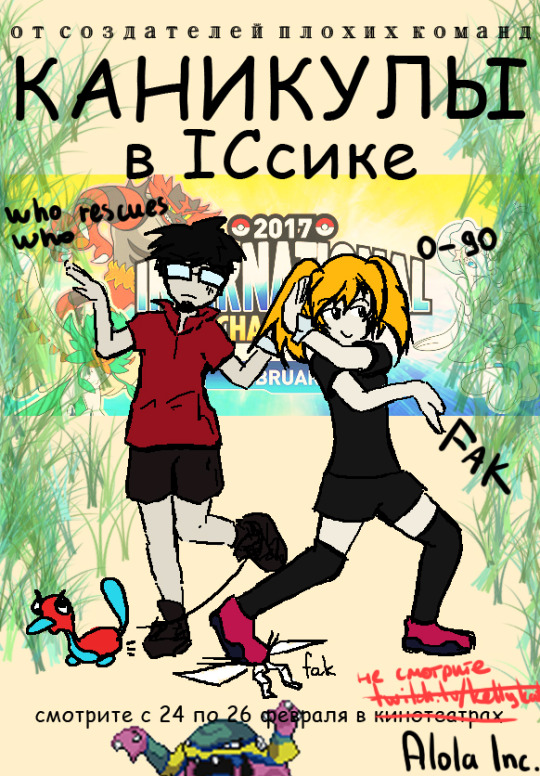
February IC poster with @Elveman yeah we had fun once
Then I built an AFK team too but with fucked item choices (firium arcanine just why), but I also had Scarf Porygon-Z and it was amazing to use.
I brought Hail team to St Peter (yeah I travelled to St Petersburg) and Moscow PCs, got 1st and 2nd, AFK PZ team - to MSS Q2 AND I WON AGAIN. I was wondering why my enemies rivals didn’t visit our events, but ok, it was not my problem. Especially when our 2016 nats champion became my main enemy.
This was my season flow. I traveled, I played, I was studying at university and it was my graduation year, I had a job and tried to combine it with studying and pokemon, sometimes it affected my results. I was invited to represent Pokemon at Hinode 2017, the huge annual Japanese event in Moscow, with my main rival, famous russian pokemon community moderator and some TCG guys. It was definitely a nice experience. I got money from that just because I told people how amazing pokemon is, I teached them how to battle and showed that there’s much more than Pokemon Go. Yes, I don’t like Go. All pokemon players don’t like Go here.
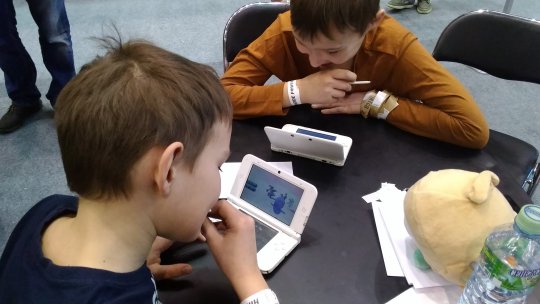
b-but they’re so young!!! pic from Hinode.
Well, I thought season should have something else besides MSS and PCs, and hell yes, 8 Russian Special Events at 8 different cities were announced in May. Moar travelling! We(my rival, me and our tcg frens) decided to go to St Peter (again), Perm, Astrakhan and Ufa. Someone decided to go to all 8 SE because he wanted to.
The big-big drama started at our community but I don’t wanna share it here.
I graduated, traveled and played, and since my rival missed 2 Specials due to his own graduation and some other issues, my invite made a bit more real. Wait. THE DREAM OF MAKING WORLDS BECAME REAL!!!!!!!!!!!!!!!! But I still needed to put a lot ot work into it. Top 1 vgc gets paid invite, I was 1st, but tcg guy with a good amount of vgc points was second (because he always played vgc after tcg at special events). I thought he will play TCG after all and he won’t interfere with my road to worlds, but I found out that he is going to the city we’re all decided not to go, to grind some tcg AND vgc points. I got angry as a rival and made an impulsive decision to go to Irkutsk Special before Moscow Special. And I went. And got some important points. And pretty locked up my invite. But I said to myself that I shouldn’t sсream it out loud and dance in the shower before the official ceremony in the end of the season. I still had Moscow event.
Huh. Our system this year allowed travelling, and 8 Special Events were held in June and July. Because I had the will and money to travel, because I got a job and combined it with studying at university and somehow haven’t lost it, I visited 6 Special Events. People started to shittalk me. I am wallet warrior, I am noob, I am not worlds caliber, I bought an invite and so on. I even partly agree. At that point winning russian events isn’t close to winning or doing well at EU/US events. Not every SE at regions gave us a strong competition. I am deadly far from WolfeyNails/Markus/etc level. But even with that, should I leave my spot and act like a fucking noble idiot? ‘Oh I am bad and not worlds caliber, guess I should give up now’. Yes. Definitely. Absolutely. It sounds ridiculous, doesn’t it? I have a game I love, a desire to travel, a job and money for that, so why not. If you don’t play and try, you can never ‘get good’. Sitting on a sofa and thinking ‘oh I will never be good enough so I better don’t play’ is a shitty mindset as well. And then twitter drama about ‘free worlds not being elitist’ happened, I’ve become so sick of that.

Moscow Special. The long-awaited end of the season. Really long-awaited because I felt like every day had 48 hours. I didn’t have special plans for Moscow. I didn’t want win it out as hell, I just wanted everything to end. And it ended.
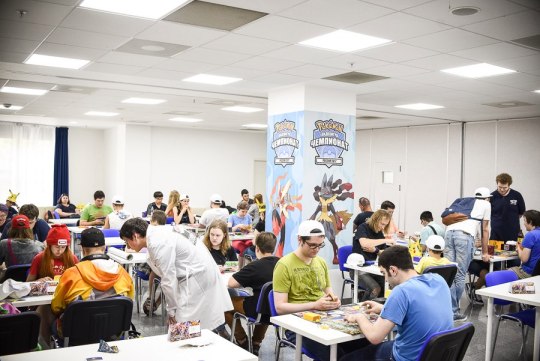
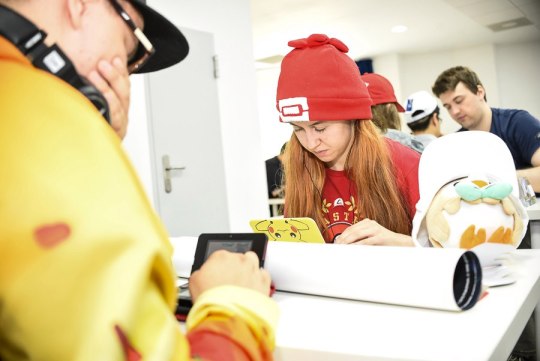
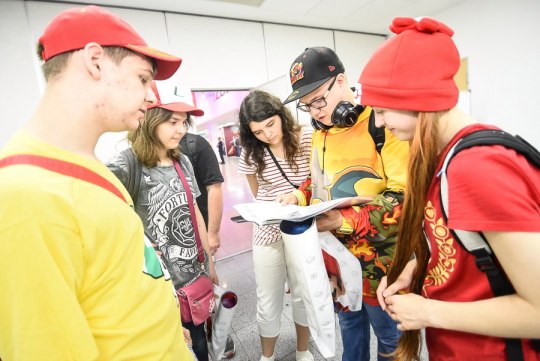
the event
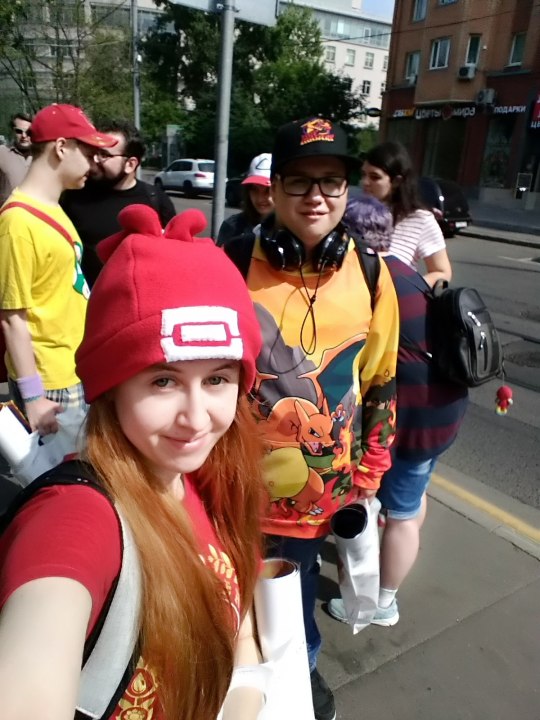
party after d1
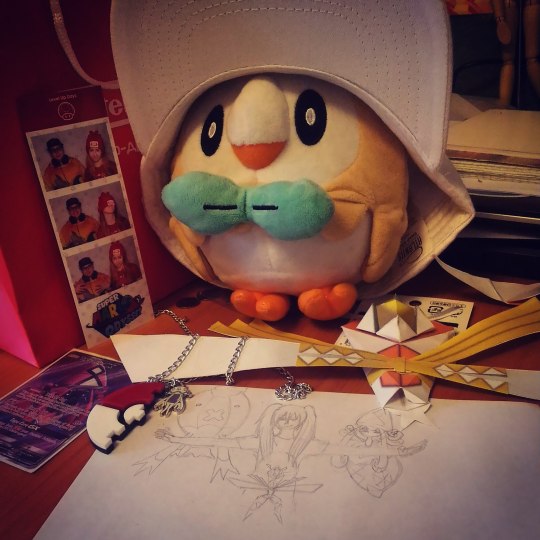
i remember how to draw

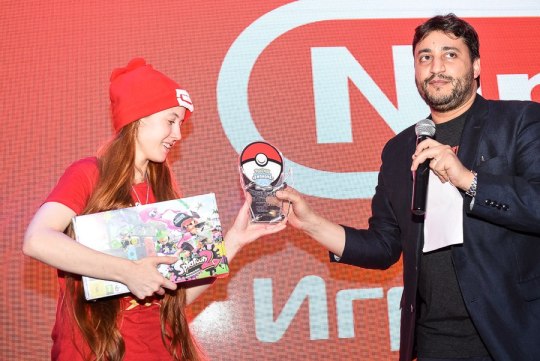
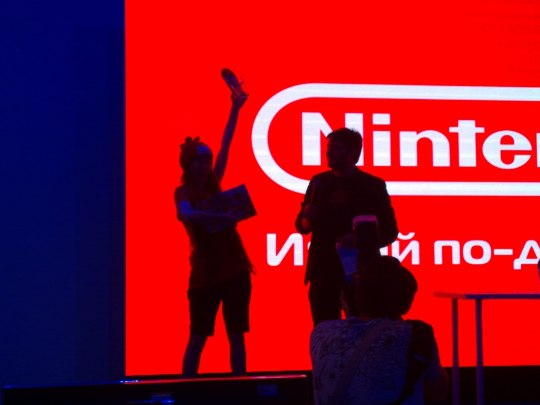
the main scene

turn your main enemies to judges lol
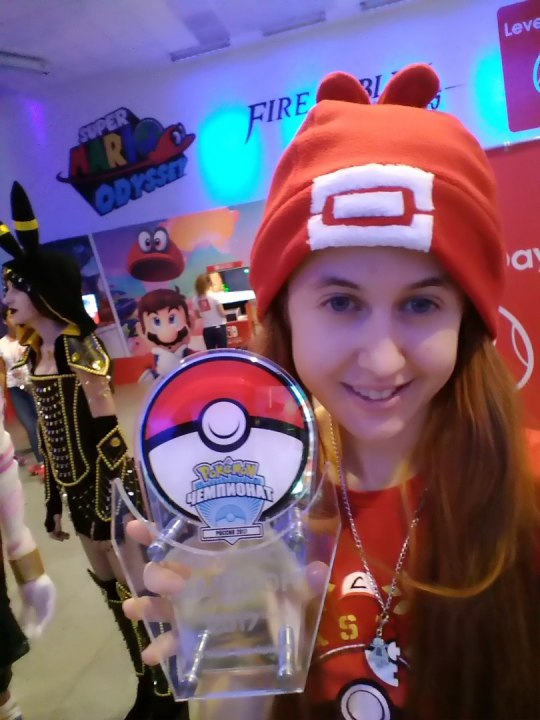
#lifegoals
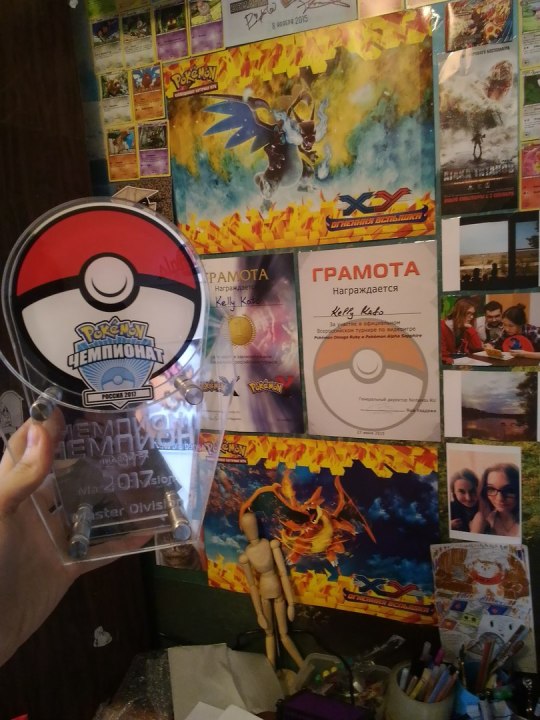
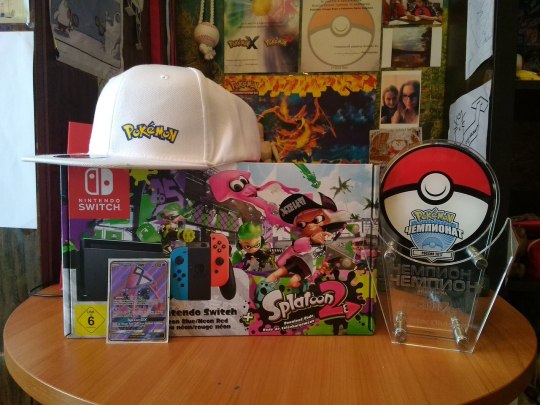
<3
Despite tons of personal shit happened to me this season, apparently I found myself a better person. i don’t know if this is growing up, I am already 21 and difference between 19 and 21 doesn’t seem too big, though my mind and attitude to some things have noticeably changed.
Got rid of fake elitism, as it was in my early days of competitive and my -most famous year- (2015). I can’t even imagine now but then I thought that competitive is the BEST part we can have about pokemon, and everyone else who likes casual playing or anime are absolute losers and can never be as cool as us. Your dream is completing dex? Breeding a shiny? You love some anime characters and wanna watch fuckin dummies’ anime forever? Uh, dream of becoming a xXxWORLDCHAMPIONxXx just disparages your shitty life goals. I laughed at people i don’t know in person and who didn’t do anything bad to me.
I don’t know what changed my mind in particular. It’s like I just woke up with thoughts “why should I do this”. I saw that people who are not only about competitive can have and reach their own pokemon dreams, they’re valuable too. They can travel not only for competitive. For love to the franchise all of us are fond of. I am sorry for being an asshole :)
Got some skills of loving myself. Yup, y’all might know it was a big problem. Tl,dr: I haven’t a reason to. My only ray of light was being successful enough in vgc and when I wasn’t it became a catastrophe. Bad runs at IC, losses at regionals stages, bad BS sessions? Oh god, i am so shitty, i hate myself - and it was the softest thing I said. It was a mix of hatred and sadness and absolutely wasn’t a great thing to feel. It cost me a real depression in 2016 - though I didn’t even play that season, it hit me hard. I let it happen, I let myself think and treat the game that way. Now it is slightly better, and it also feels so new. It’s like WOAH you actually may not hate yourself for a loss? In 2015 I had my Nats spot already reserved, but every mediocre regionals stage run made me feel terrible. This season I was fighting for the Worlds (Worlds > Rus Nats) right from the start with no ‘safe options’, I was losing too, but I could cope with that. Though losing is always sad. The difference is in being frustrated and hating yourself for days or week and being frustrated and hating yourself for an evening, and then you’re saying something like enough, it won’t make me better, learning and practice will make me better, so let’s play tomorrow. Pephan helped me out a lot with this. Tons of love to Pephan.
Well, also I reached a dream. When I was 17, I watched 2013 Worlds with excitement, though I understood nothing because I was an OU child. New format? Big event? That was very unfamiliar but holy crap so breathtaking! Two guys were fighting for the honourable title with some beautiful teams and strategies, I felt their drive even when I was so far away. That blew my mind. I told myself that I want to visit Pokemon World Championships too. The long way of getting better started in 2013 and will never end. I won Russian VGC 2014 big event and got closer to my dream. I qualified to Russian National Championships in 2015 and almost made my dream real, finishing 2nd. I got broken and gave up because sometimes it was too hard to keep up. I remembered how I sang lyrics from “Wavin Flag”: ‘when I get older, I will be stronger’. The dream wasn’t dead. And I tried again. And I did it. The most trivial thing I can say now is do not give up and fight for your dreams, but this is really true!
Every Trainer has a choice
To listen to that voice inside.
I know the battle may be long,
Winners may have come and gone
I will carry on!
Yeah, this dream will last forever,
And this dream will never die,
We will rise to meet the challenge every time.
(Advanced Challenge)
Yeah, this dream keeps us together,
This shows that you and I
Will be the best that the world's ever seen,
Cause we always will follow this dream!
-----------------------------------------------------------------------------------------------------------
Nothing can be perfect in one second. I still have issues with rivalry and with the community, though I wonder how we will do in 2018.
Thanks for reading and, finally I can say it, see you at Worlds!
Shout-outs to: PurpurVGC, Loui, PephanVGC, Elveman, Sergey, Annet Ilvers, unhealthy rivalry and Havkai for making this season amazing.
2 notes
·
View notes
Text
letter to scientific adviser
Hi, C.!
I think every my conversation with you brings new insights. Today it was illuminating, even though brief.
I will tell you what I have now, regarding my exams:
I do have a draft of a syllabus for a grad course structured around ruins. I did it as an exercise in the M. F.'s course Supervised Teaching in Anthropology. This has to be reviewed, definitely, because it has been a while ago and my understanding of the theme advanced, but it will serve as a starting point of my work with J.
I do have a ten-pages bibliography of books centered around ruins, ruination, nostalgia, and empire. 126 positions in total, with a grand chunk of which I am familiar quite well. However, I did not read every single book or article in the list, nor does this list contain my newest read material, so I would have to add, to work through it, and to familiarize myself with things I am not yet familiar.
I have an annotated bibliography as well, which contains 5 pages in total, and was prepared by me for the course of C. S. on (...) writing--this annotated bibliography also could be updated and re-adjusted. It is a shortened version of the bibliography mentioned above, only with an explanation for each position why this particular piece is included (that is to say, the main argument of each work is recapitulated).
I want to remind you that I did an annotated bibliography on dams’ construction, which I composed by your request during the summer of 2014. Every day throughout that summer I went through one article or book, and reviewed them--I think this document serves as an additional bibliography, and I would like to review or at least to reread it at some point to refresh it in my memory in order to prepare better for the fieldwork and for the exams.
I have the project with which we are working with you, on Bratsk dam and Russian literature, and, although it is tangentially related to ruins, as you noted today, on the other hand it might end up being most pertinent to my future work in the region. As K. said to me two days ago, "your field might surprise you," and I can see the center of the research drifting towards not just ruins in the broader sense, but to ruins infrastructural, which would demand some more reading on infrastructure (Brian Larkin, Caroline Humphrey, and AbdouMaliq Simone will be the first to look at--again, I am familiar with their work, but I might benefit from revising).
I have the "Debris of Utopia" project, to which you referred as "the piece on ruins," but if my goal is mastering the current discourse on ruins, I don't want to focus on this insurmountable project of 200 pages just now. I might, as I told you, write a sort of introduction to it which would have a theoretical character.
I have an article which I revised twice and did not present yet, that I initially wrote for C. H.'s class, which is titled "Pervasive Affect: Circulation of Nostalgia in the Siberian Zones of Abandonment," where in the first part I summarize the current debate on what affect is, and it is reflected in the bibliography. I then analyze what nostalgia might mean in the Siberian places dispossessed of the state care. A big part of this writing is a linguistic analysis of an oral history recorded in Anosovo in 2013--essentially, a story of relocation told by an elderly person.
As you know I have my field notes from Moscow and Siberia, but I do not think it is the time to be working with them--not until my second round of fieldwork, whether it'll be another preliminary summer fieldwork, or a year-round fieldwork if I end up getting a grant.
I do have a piece about ruins and photography, which might be greatly enriched with theory. In fact I am planning to present this piece at the New Directions in Anthropology this year, because it has been my desire to return to it and to re-work it.
I am also going to present on the incoming Linguistic conference at UT, the piece on two words--poshlost' and byt'. This piece is about "untranslatable words and incompatible worlds," and traces the circulation of these words. I use Svetlana Boym's work there in particular on both these words.
And the full disclosure, I also have a 500-page file, the content of which I once printed and brought to you, perhaps you remember. This file consists of fragments that I wrote, quotations, observations of I think anthropological character, but also it contains my disorderly writing on Nabokov (out of which I carved an article for the Linguistic conference at UT last year); reflections on my own change of language, reflections on the nature of writing itself, on American malls and how they suffer from decrepitude; on selfies and digital identities (Derrida thinks self-portrait is a ruin), etc., etc. Again I extracted out of it the piece on robots for the AAA conference which I am very happy you attended.
I continue thinking about visual essay on Siberia and the handwritten album that you advised and inspired me to do and that I showed you this winter. It still contains the same 6 pages. (I found it is a slow project, and one page takes me a full day.) I have the handwriting that I have already done typed, including the captions, and it might eventually serve as the beginning of the visual essay. But as much as I like this project, I suspect I might particularly enjoy finishing it over the course of the summer in Siberia.
This is not counting all other projects I've been doing in the last two and a half years ever since I got accepted to the program. The account of these projects is below.
(The list below does not include my Russian publications, although I wonder, why? Oushakine does include his Russian publications--I might certainly do the same. Mine are few (three or four), but they went out in good peer-review journals. My publications in Russian are not anthropological in the Western sense but they are ethnographic. I quote Katie Stewart in one of them. They have a strong literary bent, but they are not fiction).
So the list is below.
To conclude, in this email you have the fullest account up to date of what I have been doing as of late.
Best, V.
P.S. I do not mention my creative projects here, both in Russian and in English, mainly poetry, but also prose--I think it is best if I am more or less reserved about them in academia. But I still want to share with you that I am thrilled that my new book of poetry in English has just came out, it is titled "Holy Robots." I, of course, noticed the "like" that you awarded me with on Instagram in connection to this miraculous event. XX copies of it are sold on Amazon in two days; this modest number, as funny as it is, is actually a great number for a poetry book.
Writings, Presentations, and Talks
2016 “Ryzyka: A Curated Conversation” Visual Essay. Cultural Anthropology. In co-authorship with Irina Oktiabrskaya, Valery Klamm, and Craig Campbell
2016 “Archeology of the Robotics: Remnants of Soviet Robots.“ Talk. November 19th. 115th Annual Meeting of the American Anthropological Association. Minneapolis, Minnesota
2016 “Robot as a Subject (Object) of Ethnographic Study.“ Invited lecture. October 14. Introduction to Cultural Anthropology. University of Texas at Austin [Video]
2016 “Russian Literature on Bratsk Dam: the Human in People-Altered Landscapes of Soviet Industrialization.” Presentation. September 25. “The Extra-Human” 13th Annual Graduate Conference in Comparative Literature. University of Texas at Austin [Audio]
2016 “Russia, USA, and the Islamic World: Multiplicity of Feminisms.” Talk. Feminist Society ONA (“She”). Moscow, August 14
2016 “Austin Old-Timer and Newcomer.” The End of Austin, 24th of May.
2016 “Writer’s Change of Language: Nabokov and Others.” Symposium on Language and Society. University of Texas at Austin, April 15
2016 “ISIS: Use of Atrocity in State Formation.” Invited Lecture, Expressive Culture. University of Texas at Austin, April, 6
2016 “ISIS: Active Ruination and Performativity of Public Execution.” New Directions in Anthropology Conference, University of Texas at Austin, April 1
2016 “Late Soviet Childhood.” Futures and Ruins Workshop at Duke University, March 25
2016 “Pussy Riot: The Contest of Performances and Political Affect.” Utopia and Reality: Latin America Confronting Globalization. Gender and Feminisms. University of Texas at Austin, March 3
2015 “On Methods in Socio-cultural Anthropology: Production of Ethnography Through Observation, Recollection, and, Occasionally, Forgetting.” Invited Talk. Center for Russian, East European and Eurasian Studies at University of Texas at Austin, October 21
2015 “Debris of Utopia: Reflection on Ruination in the USSR and Post-Soviet Spaces.” Presentation. New Directions in Anthropology Conference, the University of Texas at Austin, March 27-28
2014 “Grackles and Old Cars,” The End of Austin, 22nd of May.
2014 Russian Language in the New World. Talk. Society of Social and Religious Studies, Moscow, Russia
7 notes
·
View notes
Text
Our Student-Led Conferences Were Falling Short. Here’s What We Changed.
“Focus on your mantra,” I told myself. “Breathe in and out, go to your zen place,” my inner voice whispered. I wasn’t practicing yoga or daily meditation. I was preparing for parent-teacher conferences.
After over a decade of teaching in the suburbs of Pittsburgh and encountering countless parents aggressively accuse me of dashing the dreams of their children by giving them a B, I had developed a preparation ritual that even a practiced yogi would envy.
As I sat in my new classroom at Intrinsic Schools in Chicago, awaiting the first family to arrive, I wasn’t sure how things would go. There was certainly a different culture around conferences at my new school, and apparently students were supposed to lead them, but out of habit, I did my breathing exercises and recited my mantra. I was ready for whatever came my way, but as I inhaled deeply and opened my eyes, I was greeted warmly by my advisee Rob and his excited parents.
Rob set up his power point slides independently as his parents made small talk with me. “They’re smiling now,” I thought, “but wait until they see his GPA.” He began his presentation, taking us slide by slide through his current grades, his NWEA scores and the goals he had for his future as a YouTuber, a gamer or an E Sports professional. His goals were lofty and somewhat unrealistic. Rob felt that because he liked playing video games and knew of a few young people who had become YouTube sensations, that it was simple to do and that he could become famous.
After Rob’s presentation, I shared some handouts compiled by our school leadership team detailing his promotion requirements and we discussed them together. Rob committed to studying more, attending office hours and managing his time better. I kept waiting for the fall out, but as the conference continued, I realized that my breathing techniques weren’t necessary. There was no aggression, only active listening—Rob’s parents were engaged in what he had to say. Though their rolling eyes and stern comments communicated disappointment, they did not use the conference time to ask questions. When he was finished, they glared at Rob, thanked me and left.
Rob’s wasn’t the only conference that went this way. Many of my students had unrealistic goals. One wanted to play professional football but had never played before—our school doesn’t even have a football team. While we want to encourage our students to reach for the stars, we’ve had to have some tough conversations with students about the reality of their goals, and we now recognize the detriment to waiting until sophomore or junior year to say something like: “You have never touched a football, how can you expect to be in the NFL in a few years?”
Though I didn’t need to practice deep breathing for Rob’s conference, I walked away from it disheartened because I knew that it didn’t accomplish exactly what a conference should. We looked at Rob’s not-so-stellar grades and we chatted about his goals, but our conversation was surface level and nebulous. We hadn’t tackled the elephant in the room: the fact that Rob’s goals might be unattainable. Rob had completed and presented his slides, but now what?
The Origins of the Student-Led Conference
At Intrinsic Schools, while conferences are still a time for parents and teachers to talk, the spotlight is on the student, who plays a key role in the conversation. In fact, these conferences even have a different name: student-led conferences (SLCs).
SLCs are not exclusive to Intrinsic Schools—a charter school in the Belmont Cragin neighborhood of Chicago that serves a largely Latino population—but we have spent a significant amount of time honing and revising them to maximize their effectiveness as a tool to help students reach their potential.
We began SLCs in 2014, during the school’s second year in operation. They were intended to put students at the center of progress monitoring and designed to address typical conference topics like GPAs, exams and academic habits, but in a format that encouraged students to take active ownership in communicating their learning, goals and growth rather than be a passive observer. Our vision was for SLCs to prompt a series of ongoing conversations that followed each student year after year until graduation. We felt that this type of conference was core to the model of the school.
A central idea was that students should be in charge of presenting information during the conference. We knew they would need guidance, so we developed a Google Slides template to help. The idea was for students to complete the template during a daily advisory period in which a group of about 15 students gather with a faculty member who acts as a mentor, but it didn’t go smoothly. Advisory was 15 minutes on most days with a 30-minute period once a week. It was too short a time to squeeze it all in.
We learned some lessons that first semester. The slides were dense and at times confusing. Students required much more guidance than we anticipated, and it was challenging for one advisor to address the needs of so many students in such a short time. It was especially difficult to support struggling students like Rob, who needed additional scaffolding to develop articulate, realistic goals and to create a presentation that accurately reflected their progress.
Rob’s conference, back in 2015, was part of what I consider SLC 1.0—the first iteration of this conference model. What worked was that instead of bringing home a report card, Rob was able to visualize and discuss his progress and challenges. The SLC made things a bit more tangible. However, as the year went on, it became clear that it hadn’t made an impact on his academic behaviors. When we had his final conference toward the end of the year, it felt like lather-rinse-repeat: similar GPA, same goals and limited evidence of growth.
I wasn’t alone. Other teachers were voicing their opinions on the state of the SLCs. A few tweaks were made to streamline the slides. However, it was not until 2018, when we established our postsecondary team including academic counselors, administrators and advisors focused on how to support the postsecondary goals and aims of our students, that SLCs became a serious focus for revision.
Moving Toward Version 2.0
After extensive work by the postsecondary team, SLC 2.0 launched in 2018. We realized what a unique opportunity it is for a student to have an “audience” of people who care about them, are eager to listen and help them foster and achieve their goals. There were a few problems though. There was a lot to conquer in a short amount of time, the first iteration of slides and guides was too obtuse and we weren’t providing enough guidance for developing goals. We also had to face the reality that even though SLCs were happening year after year, an ongoing conversation following each student from 7th through 12th grade was not materializing.
Our first step was to streamline the information included in the student presentation template. Academics remained a key focus, but we now included specific GPA and SAT requirements for various colleges. Seeing specific numerical requirements for schools ranging from Chicago City Colleges to the most competitive universities across the country, we hoped would help students create goals that were more articulate and realistic. For example, Rob’s heart is set on attending the University of Illinois, and at his most recent SLC, we were able to set very specific goals for how to do this.
SLC 1.0 Presentation 2015, Credit: Intrinsic SchoolsSLC 2.0 Presentation 2018, Credit: Intrinsic Schools
Another change we made was to include space for students to reflect on experiences outside the classroom such as Networking Night, an event in which students met with professionals and talked 1:1 about their education and career paths, and grade level retreats in which students had the opportunity to bond with their peers and teachers through activities like ropes courses. We wanted students to showcase their strengths, interests and achievements beyond academics to ignite conversations that could help guide students towards postsecondary decisions that matched their talents and interests, as well as their academic abilities.
In every iteration, the SLC has provided students with opportunities to reflect on who they are in the classroom and who they are as growing individuals. Rob has always been an average student academically, known more for his classroom antics than his test scores, but this year has been different. He came to me a few months ago, right before the first SLC of his junior year and in a very sincere tone said how much he was looking forward to it. He said he realized it’s time to mature and that he planned to use the new SLC format to make some changes for himself. Rob’s teachers have also reported that they have noticed a difference in his level of engagement and maturity as well.
As I sat in my classroom on the day of Rob’s SLC this past October, I knew there was no need for a mantra or breathing exercise; I was just as excited for it as he was. While he still has clear areas for growth on his GPA and SAT scores to achieve his goals of University of Illinois, he loved talking about the people he spoke with during Networking Night.
There were less eye rolls from his parents and threats of video games being taken away, and more conversation and realistic planning about how we as a team could help Rob meet his goals. After three years, it finally felt like the SLC was accomplishing what it was intended to do. I hope that our school community continues to reflect on our process and revise the SLC so it’s the best it can be. I also hope to sport a University of Illinois sweatshirt in celebration of Rob at his final SLC next year.
Our Student-Led Conferences Were Falling Short. Here’s What We Changed. published first on https://medium.com/@GetNewDLBusiness
0 notes